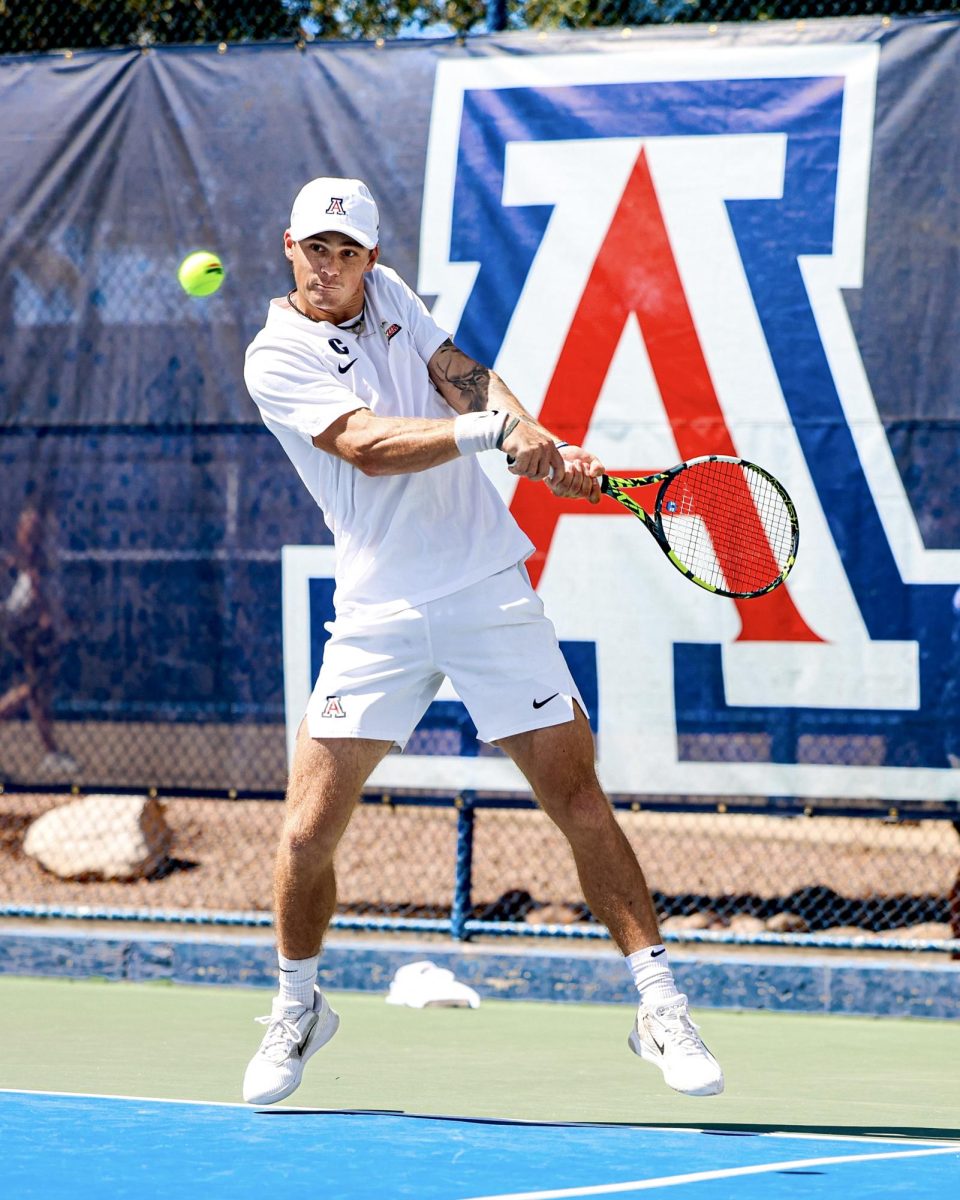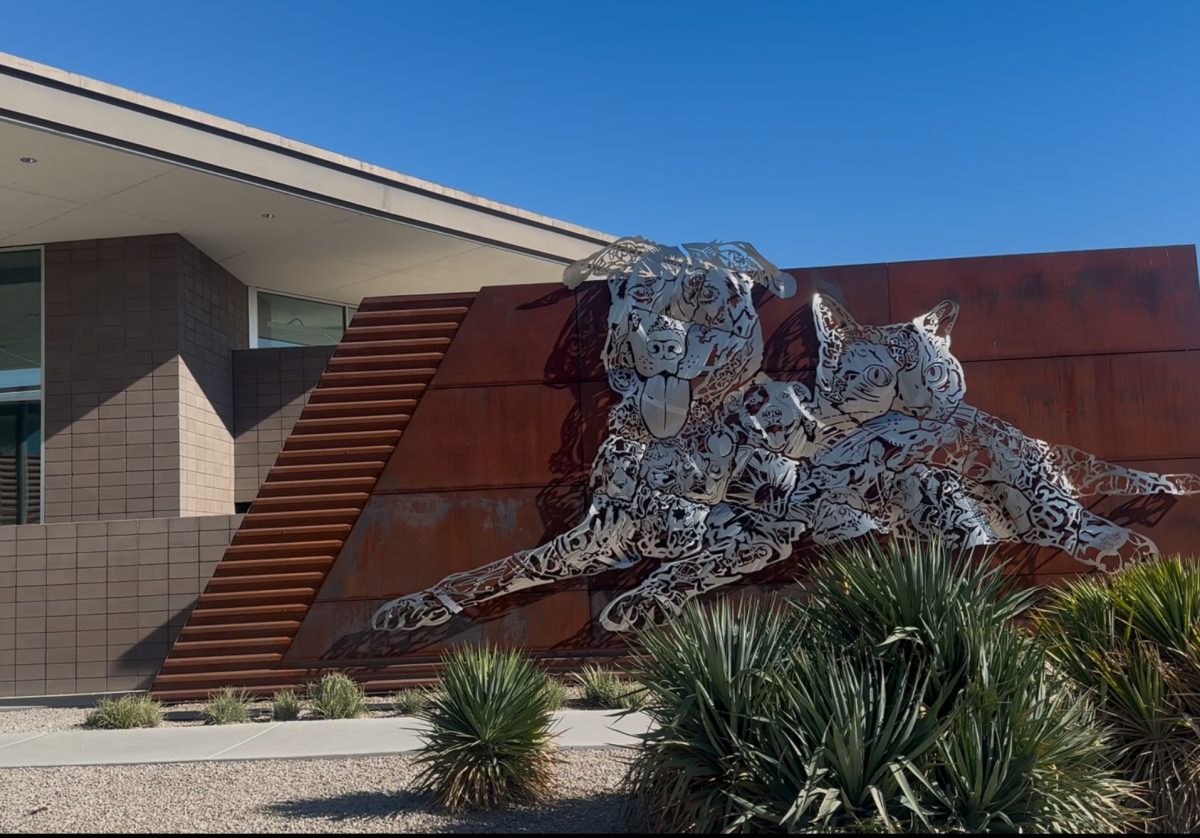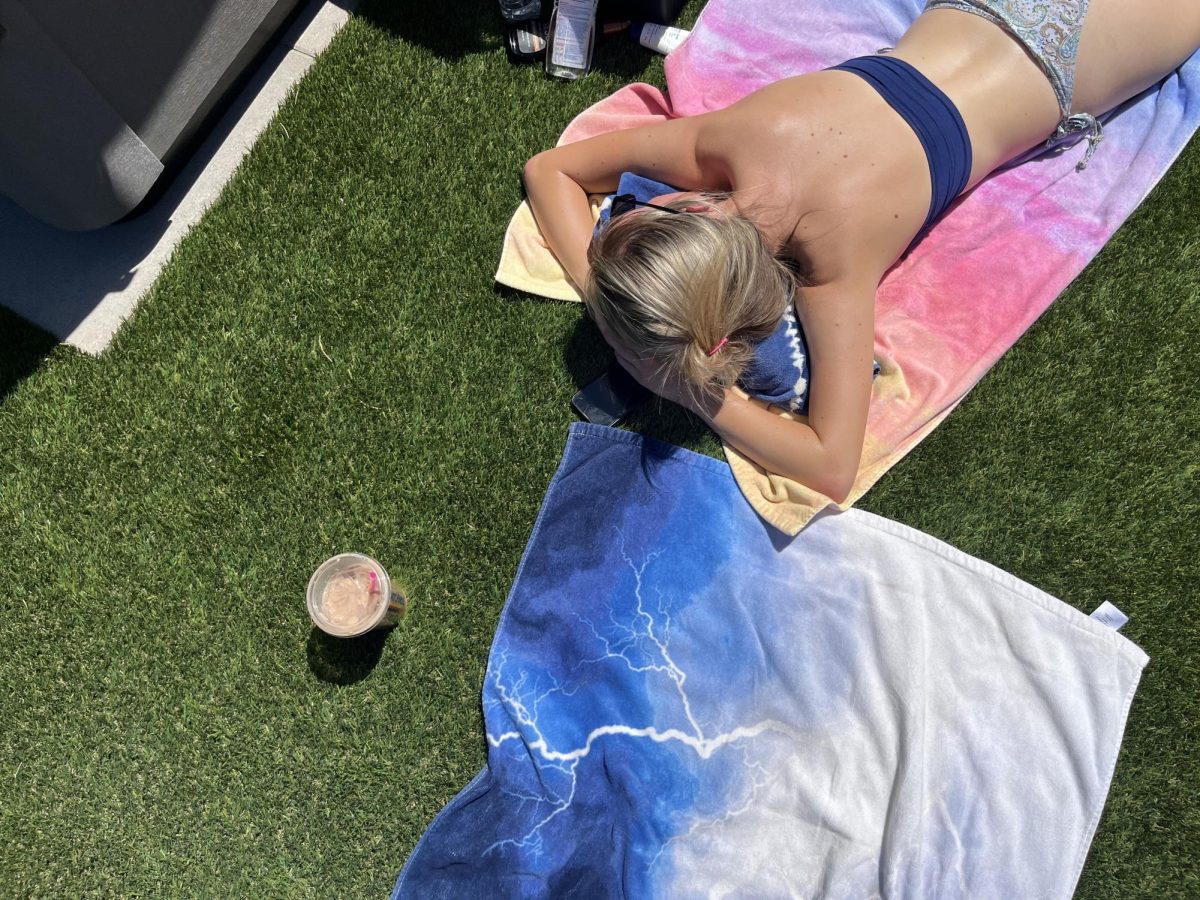
Athlete tethered to instructor prepares to ski down Humphreys Peak in Flagstaff, Ariz.
When Alex’s fifth-grade class was taking a field trip to Humphreys Peak in Flagstaff, he was told he had to stay behind.
Alex has autism and is non-verbal, which was the reason his mother was given as why he couldn’t go.
Sarah Dorman didn’t take no for an answer.
Instead, she reached out to the support team at High Country Adaptive Sports, which works with people with intellectual, cognitive, and physical disabilities, and arranged for an instructor to ski with Alex during the field trip.
That experience sparked an interest that Alex, now 16, continues nurturing with regular ski sessions.
“Skiing allows Alex to go fast and to feel a sense of freedom,” said his mother.
High Country Adaptive Sports in Flagstaff is celebrating 10 years of making adventure accessible in Northern Arizona’s mountains and forests for those with disabilities, with the use of adaptive equipment and specially-trained staff.
The non-profit program, which calls participants “athletes,” offers a variety of extreme sports options on Humphreys Peak and the surrounding areas, including skiing and snowboarding in the winter, and rock climbing and kayaking in the summer.
The program recently added a TetraSki independent adaptive skiing device that it bought with a grant in 2024. The TetraSki enables individuals with complex physical illnesses or injuries, such as people who are quadriplegic, to ski independently using either a breath control system or a joystick to steer and control their speed.

Instructor demonstrates how new adaptive equipment works in Flagstaff, Ariz.
High Country, which relies on grants and donations, is the only program in Arizona offering adaptive skiing and provides over 500 adaptive ski lessons a year, working with more than 4,000 children and adults.
Programs Director Truman Shoaff said the program is at a point where it is getting more well known. Shoaff said he is hoping that will help the program attract more funding.
Shoaff said the program partners with organizations to provide transportation for its participants, many of whom have no way to get to their lesson.
“The biggest barriers are before the athletes even get here – paying for lesson costs and finding transportation to and from the mountain are huge obstacles for many athletes,” said Shoaff.
The program has an accessible bus to transport athletes, but their wheelchair ramp is currently broken, which Shoaff said they hope to fix when they get funding.
All instructors in the program are trained through the Professional Ski Instructors of America and have adaptive skiing certifications. The program also employs volunteer skiers to trail behind the student and instructor during lessons as a buffer between other skiers.
The lessons “come down to patience, one-on-one teaching and adaptive equipment,” said Shoaff. “What we do is try to show people that we are here, and we want to work with them to get them on the snow and have a safe and fun learning experience.”
The adaptive skiing program costs between $110-$250 per a half or full day of specialized ski instruction. High Country has a scholarship program that allows participants who qualify to pay what they can.
“We don’t turn anyone down,” said Shoaff.
High Country’s motto is to “Get out of the comfort zone, go into the adventure zone, without going into the danger zone.”

High Country Adaptive Sports Instructors and Athlete pose together on Humphreys Peak in Flagstaff, Ariz.
Emma Thorell did just that when she started the program five years ago.
The Phoenix resident who has cerebral palsy said she has found her community on the mountain.
“The instructors are such good listeners, and the trust and communication we have with them is so important,” she said. “It’s a home away from home, where I can be cared for, and fully be myself.”
Thorell does a lot of physical and occupational therapy as part of her condition, which makes her appreciate her time skiing.
“They are good at making sure I am not in any pain,” said Thorell.
Hannah Lutz, who uses a wheelchair due to a traumatic injury, was convinced to give adaptive skiing a try, But she didn’t think that she would like it due to the cold weather. She also worried about the possibility of falling and getting hurt.
High Country’s staff quickly changed her mind after an early lesson, and she ended up loving it.
“It is so healing to be on the mountain, out of my wheelchair, and feel free to go wherever I want,” said Lutz. “The program has allowed me to gain confidence in myself, and has let me work on being patient with myself.”
Lutz advises others in her situation to “try anything once; you never know what you’ll like until you try it.” She also says you have to be “patient with yourself and your body.”
Peter Fischer, who has had a degenerative joint condition since he was 4 years old, has been skiing with the program for 10 years.
Fischer, an accessibility coordinator for Arizona State University, said that any sport you can think of has an adapted version or something equivalent for people with disabilities.
“It is an equalizer,” he said. “If my friends want to go skiing, I can go with them and not just sit in the lodge.”
When Fischer first tried adaptive skiing over 30 years ago, the devices were not as good as they are now.
“The technology is night and day,” said Fischer, who has been skiing with the TetraSki for three years now. “It feels more like actually skiing with two skis, it is so adaptable and uniquely designed.”
“Adaptive sports are a key to continue enjoying sports of any kind, and anyone of any ability can attempt any sport in a way that works for them,” he added.
Ski season ended for High Country Adaptive Sports on April 1, and they are pivoting to their summertime programs offering kayaking, rock climbing and mountain biking.
For more information or to register for lessons, visit the High Country Adaptive Sports website at highcountryadaptive.org or call 928-525-4084.
Arizona Sonoran News is a news service of the University of Arizona School of Journalism.









